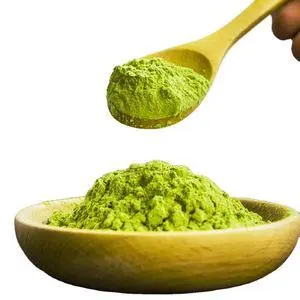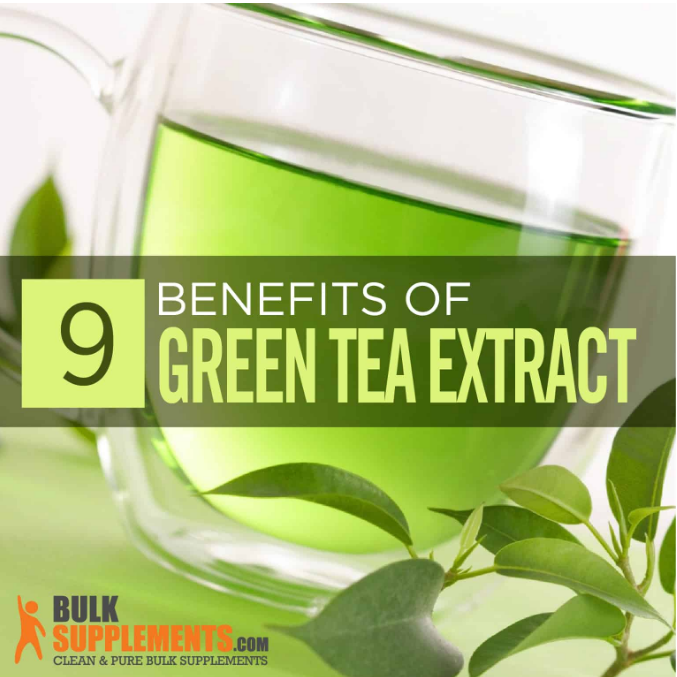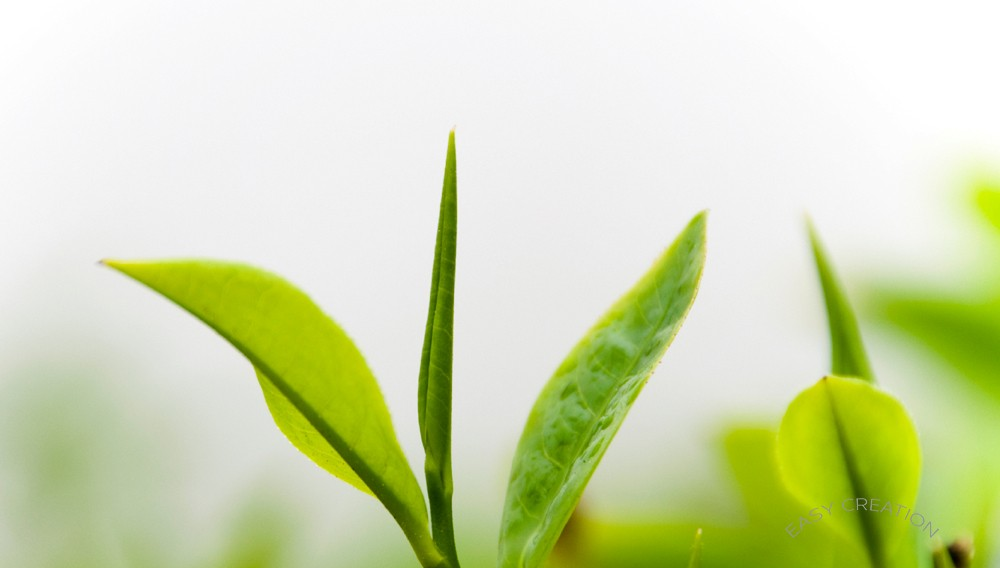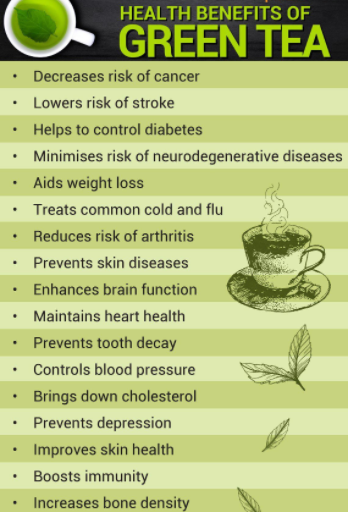Content Menu
● Understanding Green Tea Leaf Extract
● Potential Health Benefits of Green Tea Extract
● Potential Risks and Side Effects
● Balancing Benefits and Risks
● Alternatives to Green Tea Extract
● Conclusion
Green tea has been a beloved beverage for centuries, particularly in Asian cultures where it has been cherished not only for its refreshing taste but also for its potential health benefits. In recent years, the popularity of green tea has surged globally, with many people turning to green tea extract as a convenient way to harness its purported advantages. However, as with any supplement or concentrated form of a natural product, questions arise about its safety and potential side effects. This article delves into the world of green tea leaf extract, exploring its benefits, risks, and overall impact on health.

Understanding Green Tea Leaf Extract
Green tea leaf extract is a concentrated form of the compounds found in green tea leaves. It is typically available in capsules, powders, or liquid form, making it easier for people to consume higher doses of the active ingredients without having to drink multiple cups of tea throughout the day. The primary components of green tea extract are polyphenols, particularly a group called catechins, with epigallocatechin gallate (EGCG) being the most abundant and well-studied.
These compounds are known for their potent antioxidant properties, which have been linked to various health benefits. The concentration of these beneficial compounds in green tea extract is much higher than what you would find in a typical cup of brewed green tea, which is why many people are drawn to using the extract as a dietary supplement.

Potential Health Benefits of Green Tea Extract
The popularity of green tea extract stems from its impressive array of potential health benefits. Research has shown that regular consumption of green tea or its extract may contribute to various aspects of health:
1. Antioxidant Properties: The high concentration of catechins in green tea extract provides powerful antioxidant effects. These compounds help neutralize harmful free radicals in the body, potentially reducing oxidative stress and inflammation.
2. Weight Management: Some studies suggest that green tea extract may boost metabolism and increase fat burning, particularly during exercise. This has made it a popular ingredient in many weight loss supplements.
3. Heart Health: Regular consumption of green tea has been associated with improved cardiovascular health. It may help lower bad cholesterol levels, reduce blood pressure, and improve overall heart function.
4. Brain Function: The caffeine and L-theanine in green tea extract may have positive effects on brain function, including improved mood, alertness, and cognitive performance.
5. Cancer Prevention: While more research is needed, some studies indicate that the antioxidants in green tea extract may have protective effects against certain types of cancer.
6. Blood Sugar Regulation: Green tea extract may help improve insulin sensitivity and reduce blood sugar levels, which could be beneficial for people with or at risk of type 2 diabetes.
7. Skin Health: The antioxidants in green tea extract, particularly EGCG, may help protect the skin from UV damage and signs of aging when applied topically or consumed orally.
8. Liver Support: Some research suggests that green tea extract may have protective effects on the liver, potentially helping to prevent or manage fatty liver disease.
9. Exercise Performance and Recovery: The compounds in green tea extract may enhance exercise performance and reduce muscle damage from intense workouts.

Potential Risks and Side Effects
While green tea extract offers numerous potential benefits, it's crucial to consider the possible risks and side effects, especially when consumed in high doses or by certain individuals:
1. Liver Concerns: One of the most significant concerns with green tea extract is its potential impact on liver health. Some studies and case reports have linked high doses of green tea extract to liver damage, ranging from elevated liver enzymes to severe liver failure. This risk appears to be dose-dependent and may be more pronounced in individuals with pre-existing liver conditions or those taking certain medications.
2. Caffeine Sensitivity: Green tea extract contains caffeine, which can cause side effects such as insomnia, nervousness, increased heart rate, and digestive issues in sensitive individuals or when consumed in large amounts.
3. Iron Absorption: The catechins in green tea extract can interfere with iron absorption, potentially leading to iron deficiency anemia in susceptible individuals, particularly if taken with meals.
4. Interactions with Medications: Green tea extract may interact with various medications, including blood thinners, certain antibiotics, and drugs used to treat anxiety and depression. It's essential to consult with a healthcare provider before adding green tea extract to your regimen if you're taking any medications.
5. Pregnancy and Breastfeeding: High doses of green tea extract are not recommended during pregnancy or while breastfeeding due to its caffeine content and potential effects on fetal development.
6. Stomach Irritation: Some people may experience stomach upset, nausea, or diarrhea when taking green tea extract, especially on an empty stomach.
7. Blood Pressure: While green tea may have beneficial effects on blood pressure for some, it can potentially increase blood pressure in others, particularly in high doses.
8. Headaches: Some individuals report experiencing headaches after consuming green tea extract, possibly due to its caffeine content or other compounds.
Balancing Benefits and Risks
Given the potential benefits and risks associated with green tea extract, it's important to approach its use with caution and informed decision-making. Here are some guidelines to consider:
1. Consult a Healthcare Professional: Before starting any new supplement regimen, including green tea extract, it's wise to consult with a healthcare provider, especially if you have pre-existing health conditions or are taking medications.
2. Start with Low Doses: If you decide to try green tea extract, begin with a low dose and gradually increase it while monitoring for any adverse effects.
3. Choose Quality Products: Select green tea extract supplements from reputable manufacturers that undergo third-party testing for purity and potency.
4. Be Aware of Caffeine Content: If you're sensitive to caffeine, look for decaffeinated green tea extract options or adjust your intake of other caffeinated beverages accordingly.
5. Consider Timing: Taking green tea extract between meals may help minimize its effects on iron absorption and reduce the risk of stomach irritation.
6. Monitor Liver Health: If you're taking green tea extract regularly, consider periodic liver function tests, especially if you have risk factors for liver disease.
7. Pregnancy and Breastfeeding: Avoid high-dose green tea extract supplements during pregnancy and while breastfeeding. Moderate consumption of brewed green tea is generally considered safe.
8. Balance with Diet: Remember that while green tea extract can be beneficial, it's not a substitute for a balanced diet rich in fruits, vegetables, and other whole foods.

Alternatives to Green Tea Extract
For those who are concerned about the potential risks of green tea extract but still want to enjoy its benefits, there are several alternatives:
1. Brewed Green Tea: Drinking traditionally brewed green tea is a safer way to enjoy its benefits without the risks associated with high-dose extracts.
2. Other Antioxidant-Rich Foods: Incorporate a variety of antioxidant-rich foods into your diet, such as berries, dark leafy greens, and other colorful fruits and vegetables.
3. Herbal Teas: Many herbal teas offer health benefits without the caffeine content of green tea. Options like chamomile, peppermint, and rooibos can be excellent alternatives.
4. Whole Food Supplements: Consider whole food-based supplements that provide a range of nutrients and antioxidants from natural sources.
5. Lifestyle Changes: Focus on overall healthy lifestyle habits, including regular exercise, stress management, and adequate sleep, which can provide many of the same benefits associated with green tea extract.
Conclusion
Green tea leaf extract offers a concentrated dose of beneficial compounds found in green tea, with potential advantages for various aspects of health. However, it's not without risks, particularly when consumed in high doses or by certain individuals. The key to safely incorporating green tea extract into your health regimen lies in informed use, moderation, and personalized consideration of your health status and needs.
While green tea extract can be a valuable addition to a healthy lifestyle for many people, it's crucial to approach it with caution and awareness. By understanding both the benefits and potential risks, consulting with healthcare professionals, and listening to your body, you can make an informed decision about whether green tea extract is right for you.
Ultimately, the question "Is Green Tea Leaf Extract Bad for You?" doesn't have a simple yes or no answer. Its effects can vary greatly depending on the individual, dosage, and circumstances. For many, the benefits may outweigh the risks, while for others, traditional brewed green tea or alternative sources of antioxidants may be more suitable options.
As with any dietary supplement, the key is to stay informed, be mindful of your body's responses, and prioritize overall health through a balanced diet and lifestyle. Green tea extract can be a powerful tool for health when used wisely, but it should be seen as part of a holistic approach to wellness rather than a magic bullet for health concerns.































